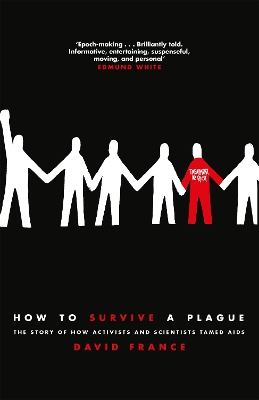Reviewed by Heather on
One of the main problems in the beginning, besides a lack of funding, was government scientists' insistence on doing double-blind controlled studies. They weren't wrong from a science perspective. These trials have patients in two groups. One group gets the treatment and the other gets a placebo. Neither the patient or the doctor knows who is in each group. The problem was that people with AIDS were dying so quickly that being in a placebo group for a few months, especially if you were required to go off all other medication, was basically a death sentence. There are stories of trials in this book where all the placebo group died in the course of the trial.
Without these studies to cover them from liability no one was willing to go on record and recommend using drugs off label. Doctors in the field, especially if they didn't handle many AIDS cases, then didn't know that giving a common antibiotic decreased the chances of patients dying of opportunistic pneumonia, for example. This was the leading cause of death in AIDS patients. It was almost entirely preventable and no one would officially say so.
I don't remember hearing anything good about ACT UP at the time. I only knew of them from news coverage that was always negative because of their dramatic demonstrations. What they did to change the culture of drug companies and to humanize the drug trials is amazing.
This book is a long, slow read. It is very densely packed with names and actions and committee meetings. The author was a young, gay journalist reporting on AIDS in New York at the time. It is very focused on New York. Occasionally it talks about San Francisco but you could get the sense that except for occasional mentions of Africa, that AIDS was only a New York/California problem. It is also focused primarily on white gay men. This was one of the criticisms of the drug trials. They wouldn't enroll women, people of color, or drug users. Although ACT UP seemed to give equal representation to women, those women aren't discussed much in the book with a few exceptions.This review was originally posted on Based On A True Story
Reading updates
- Started reading
- 12 June, 2017: Finished reading
- 12 June, 2017: Reviewed
